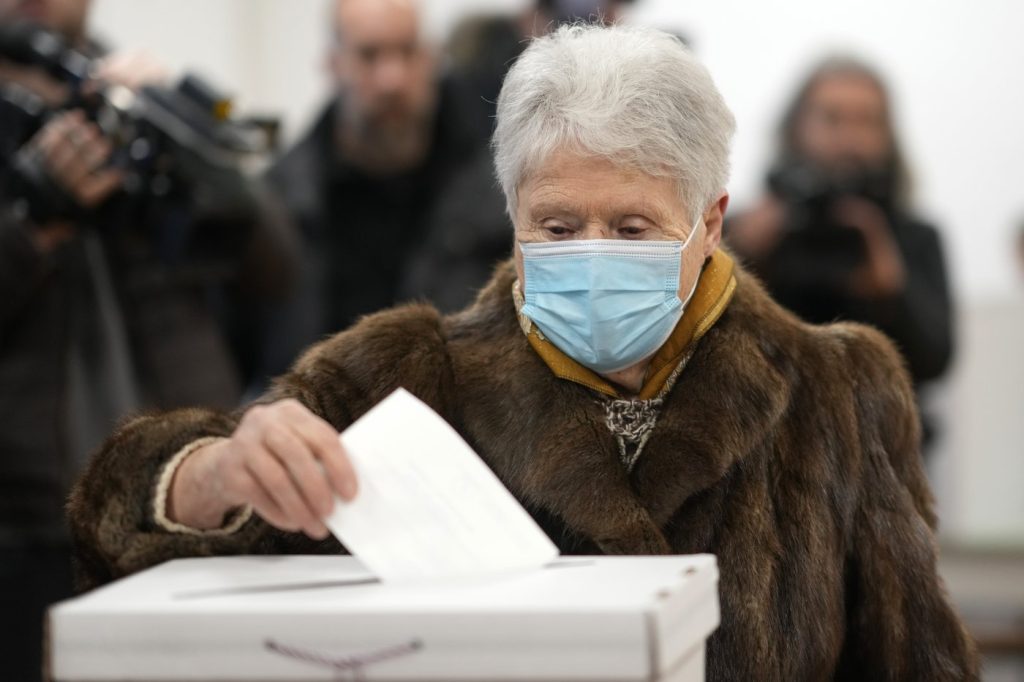ZAGREB, Croatia (AP) – In the Croatian presidential runoff held on January 12, 2025, incumbent President Zoran Milanovic emerged as the overwhelming favorite to secure reelection. Milanovic, who is associated with the left-leaning political spectrum, secured a commanding victory in the first round of voting on December 29, 2024, significantly outpacing his main competitor, Dragan Primorac, a forensic scientist with past presidential aspirations.
The necessity for a runoff vote arose when Milanovic was unable to achieve the requisite 50% of votes, missing the threshold by merely 5,000 ballots. Primorac, representing the ruling conservative party, trailed far behind with approximately 19% of the votes in the initial round.
The election unfolds against the backdrop of pressing national challenges, including high inflation rates, ongoing corruption scandals, and a critical labor shortage in Croatia, a European Union and NATO member state with a population of around 3.8 million.
Milanovic, aged 58, is known for his outspoken criticism of Western military aid to Ukraine amidst its ongoing conflict with Russia. His political style draws comparisons to U.S. President-elect Donald Trump due to his confrontational communication approach with political rivals. Having previously served as prime minister, Milanovic has a complex political history characterized by significant rivalry with current Prime Minister Andrej Plenkovic.
In public discourse, Milanovic has been vocal in accusing Plenkovic and the conservative Croatian Democratic Union (HDZ) of deep-rooted corruption, labeling the prime minister as a "serious threat to Croatia's democracy." In contrast, Plenkovic has strategically positioned the presidential election as pivotal for Croatia’s future in the EU and NATO, labeling Milanovic as "pro-Russian" and posing a risk to the nation's international reputation.
As the runoff approached, both candidates engaged in heated exchanges highlighting their stark political divergences. Primorac, 59, entered politics in the early 2000s, holding the position of science and education minister during an HDZ-led government. Despite a previous unsuccessful presidential bid in 2009, he shifted focus primarily to academia, teaching in various countries, including the United States and China.
During a televised debate, the candidates displayed their competing narratives, with Milanovic dismissing any labels of pro-Russian sentiment while defending his decision last year to block the deployment of Croatian officers to NATO’s mission in Germany, which focused on security assistance for Ukraine. Conversely, he criticized Primorac for alleged associations with "mass murderers," referring specifically to figures linked to Israeli Prime Minister Benjamin Netanyahu amid the ongoing Gaza conflict.
Milanovic also claimed that Plenkovic was Primorac’s main supporter, disparaging him as "the last communist," alluding to Primorac’s past affiliation with the former ruling Communist Party of Yugoslavia. In a rebuttal, Primorac asserted that Milanovic's primary political allies included controversial figures such as Russia’s President Vladimir Putin and Hungary’s Viktor Orban.
Despite the largely ceremonial role of the presidency in Croatia, the position is viewed as crucial in maintaining the political balance of power within a country predominantly governed by the HDZ since its independence from Yugoslavia in 1991. Political analysts highlighted that Milanovic's presidency could shape the nation’s political landscape, given his assertive and often unpredictable approach to governance.










